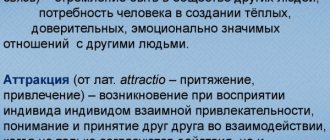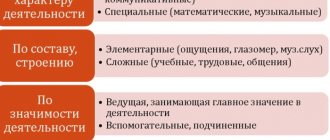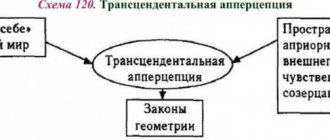Some diseases of the nervous system are accompanied by partial or complete loss of memory - amnesia. In this condition, a person loses the ability to reproduce information about himself and the events of his life.
Signs of amnesia manifest themselves in different ways and at any age, so it is advisable to have an idea of what types of amnesia exist, what are the reasons for the development of this condition, and also which specialists treat this ailment.
Kinds
Experts distinguish the following types of amnesia:
- Childhood - characterized by a person’s lack of memories of infancy. This condition is typical for almost every person.
- Anterograde - a person is unable to remember new events that have happened in his life.
- Retrograde - memories that occurred before its loss disappear from memory.
- Dissociative fugue - a temporary loss of identity occurs when a person mistakes himself for another, and then there is a sharp return of memory.
- Dissociative - specific facts or events from life are forgotten, but the person continues to retain universal knowledge.
- Transient epileptic – temporary memory lapses when the patient continues to behave adequately.
- Cryptomnesia – the source of the information received is forgotten, and the person passes it off as his own.
Signs, symptoms
The patient has no memories of specific events or a period of life preceding a strong emotional experience, while the person retains basic knowledge and skills, awareness of his own personality.
The disease is functional and reversible. Associated signs of amnesia:
- confusion;
- convulsive seizures of the epileptic type;
- anxiety, panic attacks;
- lethargy, drowsiness;
- depression;
- desire for an unreasonable change of place of residence.
Some people experience difficulties with social adaptation. Some patients are not able to realize that they need medical help, and it is the responsibility of relatives to show the patient to a specialist.
In children
Researchers of psychogenic amnesia believe that the disease is rooted in childhood.
Childhood amnesia is, in psychology, the creation of a defense mechanism in the mind of a child who is being physically or emotionally abused. It is easier for children to distance themselves from reality and go into their illusory world. Chronic psychological trauma (domestic violence) causes a child with a developed imagination to need to distance himself from the surrounding reality. Subsequently, in an adult, during times of severe mental turmoil, the developed defense mechanism is triggered.
Among women
Women are more likely to suffer from the disease; they react more emotionally to stressful situations.
Representatives of the female sex are characterized by dissociative and hysterical forms of amnesia, which begin during severe mental shock. Women who regularly suffer from migraines are at risk.
In men
Episodes of psychogenic amnesia are more common in young people with fragile psyches or who have had short-term episodes of memory loss in childhood.
There have been cases of the disease occurring in recruits (up to 10% of the total) before dangerous battles or after a bloody battle. Men are more likely to manifest pathology in the form of a dissociative fugue - the patient abruptly leaves, forgetting his name and biography, and tries to start life from scratch in a new place.
Neuralgia - What kind of disease is this?
Causes
Experts say one of the reasons for the occurrence of amnesia is the presence of mental and neurological diseases. It is these patients who often have memory problems. Pathologies that can trigger amnesia include epilepsy, dissociative disorder or multiple personality disorder, hysteria, schizophrenia and Alzheimer's disease.
Other provoking factors may be blunt or penetrating head injuries, infectious lesions of the brain or nervous system, including AIDS, hepatitis, and poisoning with toxic substances. In addition, it can be caused by: vitamin B1 deficiency in the body, hypoxia, impaired blood circulation in the brain tissue, the appearance of tumors, as well as surgical interventions.
Psychogenic amnesia is a reversible condition
Amnesia is (briefly defined in psychology) a memory disorder as a reaction to experienced negative events.
The condition requires the supervision of a psychotherapist; early treatment leads to recovery faster. Strengthening the nervous system and the ability to withstand stress allows you to avoid pathology. Please leave a comment if you or your loved ones have experienced psychogenic amnesia. How quickly did your memory recover? What treatment helped?
Tsygvintseva Anastasia · 30 Oct, 2020
Which doctor treats
In case of sudden memory loss, confusion, disorientation, head injury and other similar symptoms, you should consult a neurologist. Most often, this specialist treats amnesia.
In addition to a neurologist, you may need the help of specialists such as a narcologist, a traumatologist, an infectious disease specialist and a neurosurgeon.
This clinic employs experienced neurologists and a powerful diagnostic base (MRI, ultrasound, Electroneuromyography, etc.). After treatment, high-quality rehabilitation measures are provided. In other words, the patient, while in the clinic, can undergo diagnostics, receive consultation from doctors and begin to recover.
Amnesia is a symptom, in the event of which a person’s relatives or a person, if possible, need to make an appointment with a neurologist. Depending on the type of amnesia, our specialist will determine the causes of its occurrence, as well as treatment tactics and rehabilitation measures.
IMPORTANT! A consultation with a neurologist will help determine further actions to restore the patient’s memory. In addition, the neurologist, if necessary, will refer the person to a narcologist, traumatologist, infectious disease specialist and neurosurgeon.
Make an appointment with a neurologist at our Kuntsevo treatment and rehabilitation center - and help yourself or a loved one get rid of amnesia!
Sign up
Treatment methods
To combat amnesia, doctors use an integrated approach, which involves both psychotherapeutic influence and drug therapy.
Treatment of amnesia is carried out under the strict supervision of a doctor, taking into account the reasons that provoked the onset of the disease. Today, a lot of methods and techniques have been developed, and many medications are produced to help solve this problem. At the same time, special exercises are used to train memory.
Rehabilitation and lifestyle restoration
Memory loss is psychologically quite difficult for patients to bear. In this case, the rehabilitation process is very important. Specialists help such patients recall the past and remember new information.
Important! In such a difficult period for the patient, the support and understanding of loved ones is necessary. With their help, the recovery process will go much faster.
In addition to special exercises conducted with specialists, the rehabilitation program includes the following:
- Learning poems and songs. You can start with the material you learned in childhood, and then move on to new ones.
- Balanced diet. The menu includes walnuts, wild berries, dark chocolate, carrots, broccoli, seafood, etc.
- Active lifestyle. Sports, dancing, and walks in the fresh air help restore memory.
In addition, regular brain exercises, such as crosswords and puzzles, help.
Amnesia - symptoms and treatment
Which doctor treats amnesia?
If memory deteriorates, you should consult a neurologist.
There is currently no treatment that guarantees complete memory recovery for amnesia. Evidence for effective treatment is inconsistent and varies between researchers.
Treatment for amnesia can be divided into:
- non-medicinal;
- medicinal.
Non-drug treatment
1. Social-deontological assistance (deontology is the doctrine of problems of morality and morality, a section of ethics).
A) Informing the patient and his relatives about the disease, prognosis and care options. Despite the previously popular idea that it is better for the patient not to know the nuances of his disease, a different approach has now been adopted, since incomplete and unclear answers from the doctor only increase anxiety.
Although increased anxiety will not directly affect the development of amnesia, it may indirectly affect the pathological processes that lead to memory impairment. For example, repeated stress will contribute to the progression of hypertension, which will ultimately worsen chronic cerebrovascular insufficiency and negatively affect memory. Long-term anxiety can also cause or worsen depression, which can worsen memory loss.
Inadequate information is unlikely to protect the patient in the age of information technology - television, the Internet, books will help to find the information of interest. Even in the absence of these sources, the “truth” can be easily obtained from neighbors, friends and acquaintances or roommates. The resulting controversy will undermine trust in the treating physician and the treatment process. Limiting communication and access to the media will not help the process, since limiting the flow of information will increase the progression of amnesia and disorientation.
B) Lifestyle changes and reasonable encouragement of the patient’s social activity. For example, communicating with people of your own age or visiting an interest group. If there is a potential danger to the life and health of the patient and others, restriction of social activity and justified guardianship (including hospitalization) may be required.
2. Physiotherapy and spa treatment. The effectiveness of physiotherapy and sanatorium-resort treatment is controversial, since for patients with amnesia the effect of “native walls” is important and even a short stay in an unfamiliar place causes adaptation failure. But in recovering patients, a change of environment and physical procedures can improve the general condition and evoke new associations, which can speed up memory recovery.
3. Psychological correction - techniques aimed at restoring memory and adaptation of the patient, working with shock trauma. For example, hypnotherapy - the use of classical and Ericksonian hypnosis, suggestions to restore memory. Hypnosis is especially effective for psychogenic types of amnesia. Regressive hypnosis is used when a person in a trance goes into his own past and, if successful, can restore his memory. Other methods of psychotherapy are also used: psychoanalysis, Jungian depth psychotherapy, Gestalt therapy and body-oriented psychotherapy.
Psychotherapy does not always directly lead to memory restoration, but it definitely reduces neurotic tension and manifestations of depression, which improves the quality of life and promotes further rehabilitation.
4. Surgical treatment is effective for memory impairment caused by tumors or hemorrhages. Surgery to remove the source of brain compression will stop the development of amnestic disorder, although this does not guarantee complete memory recovery. Memory recovery is determined by the degree of brain damage caused by the tumor and the efforts made for rehabilitation.
Drug treatment
1. Etiotropic therapy - treatment aimed at eliminating the cause of the disease. Regarding amnesia, it is effective only for a small number of diseases (but even eliminating the cause does not guarantee memory restoration):
- deficiency conditions - for example, vitamin B₁ deficiency, treatment consists of its replenishment;
- inflammatory diseases of the brain - meningitis and encephalitis, antibacterial or antiviral drugs with proven effectiveness against the pathogen are prescribed;
- poisoning - antidotes (antidote) are administered;
- in somatic diseases, therapy for the underlying disease is also the treatment of amnesia, for example, in infections accompanied by psychosis.
2. Pathogenetic therapy - medicinal effects on the mechanisms of disease development. For example, for vascular diseases, drugs are used: vinpocetine (Cavinton), pentoxifylline (Trental). Cholinesterase inhibitors are widely used in Alzheimer's disease: ipidacrine (Neuromedin), galantamine (Nivalin), rivastigmine (Exelon). By improving the transmission of nerve impulses in the central nervous system, they help slow down the pathological process. The effectiveness of anticholinergic therapy differs in different groups of patients - it is considered proven in relation to mild and moderate severity of symptoms of the disease, with severe cognitive impairment the effect is unlikely [4].
A separate group of nootropics can be distinguished - drugs with different mechanisms of action aimed at improving cognitive functions (memory, attention and thinking). For example: piracetam (“Nootropil”), hopantenic acid (“Pantogam”) and others. However, the effectiveness of these drugs in the treatment of amnesia does not have a clear evidence base, and their safety is disputed by some researchers [8][17]. If an ordinary person (not a medical professional) tries to find effective nootropics for the treatment of amnesia or another problem, he will find a lot of disparate and contradictory data, which is associated with active advertising (there is a kind of “brand war”) and the lack of a unified view on the problem among doctors.
3. Symptomatic therapy - the action of drugs is aimed at alleviating one or another symptom of the disease. Among these drugs can be noted: antidepressants, sedatives, anticonvulsants, antiasthenic drugs and many others [4][7][8].
Diet
A special diet for amnesia is not required, but it is important to avoid vitamin B₁ deficiency. It is found in most foods, but pork, poultry, brown rice, whole grain cereals, nuts and peas are richest in it [19].
Lifestyle
Patients diagnosed with amnesia should exercise regularly, train their memory, eat right and not neglect visits to the doctor.
Important! The main step to renewing and preserving memory is leading a healthy lifestyle. Bad habits have a detrimental effect on brain function.
Those who would not like to face such a problem should be more attentive to their own health, control emotional and physical stress, get enough sleep, lead a healthy lifestyle and not self-medicate when the first symptoms occur.











